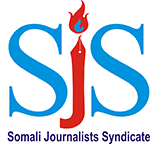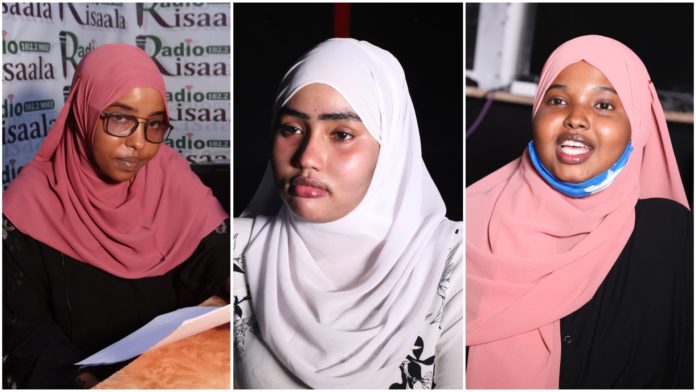MOGADISHU, Somalia, 08 March 2021 – On the International Women’s Day 2021, the Somali Journalists Syndicate (SJS) calls for an equal opportunity and equal rights for women journalists in Somalia.
This year, the International Women’s Day (8 March) is celebrated with the theme “Women in leadership: Achieving an equal future in a COVID-19 world,”. SJS recognises the tremendous efforts by Somali female journalists working to inform the public amid COVID-19 pandemic and to highlight the gaps that remain.
In a virtual event on Sunday, SJS Gender Secretary Ms. Hinda Dahir Jama highlighted the challenges facing women reporters in Somalia.
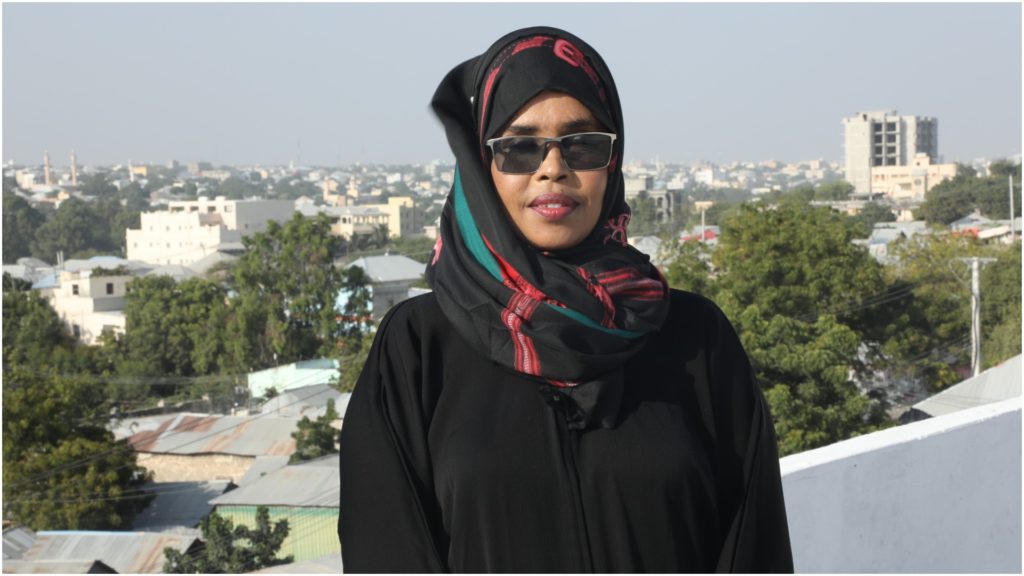
“Women reporters are braving in the front lines of COVID-19 pandemic just to inform the public about the efforts saving lives. This is in addition to the other challenges including harassment and the stigmatisation of their work due to their gender,” SJS’s Gender Secretary, Ms. Hinda said, “Still women journalists in Somalia are among the least paid while some have lost jobs and are unable to sustain families. It is time to recognise our women and give the respect they deserve: an equal future free from stigma, stereotypes and violence; a future that’s sustainable, peaceful, with equal rights.”
To highlight the role of Somali female journalists, SJS spoke with more than a dozen of the women reporters from key media houses in Mogadishu who described how their day-to-day contribution puts them at risk.
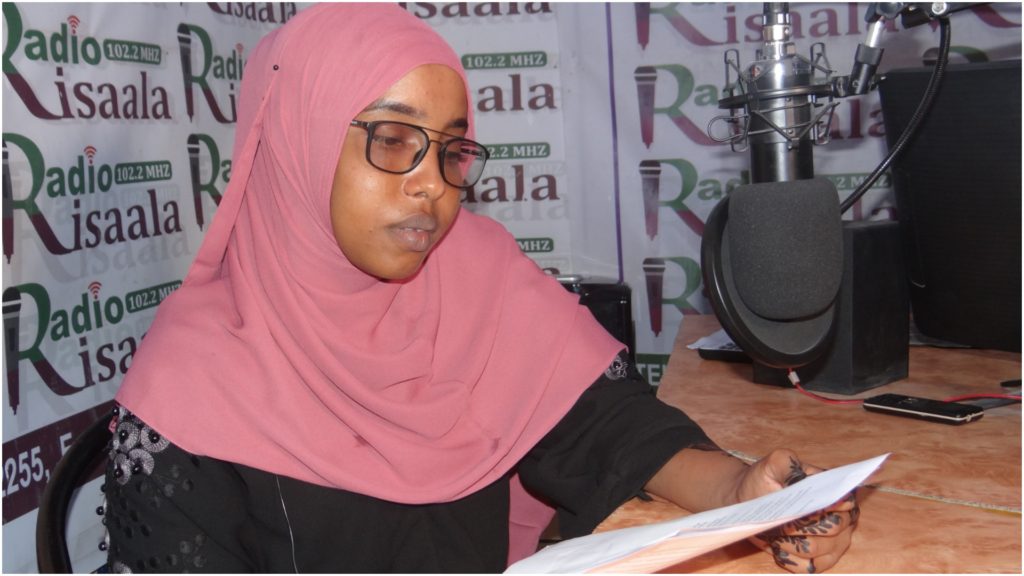
“We, as female reporters, have been at the forefront of the battle against COVID-19. Women journalists are not only reporting but also as mothers, they provide the awareness of how to stay safe during the pandemic to their families and the public. That is why the world needs women at every table where decisions are being made,” 23-year-old Ms. Hamdi Mahad Diriye who covers COVID-19 stories for Risaala TV and Radio told SJS.
Being a journalist, particularly for women is not an easy task. Ms. Habon Ali Omar, 22-year-old reporter with Radio Sahal and TUSMO TV, had decided to relocate to Mogadishu from Beledweyne town last year due to the numerous threats she faced.
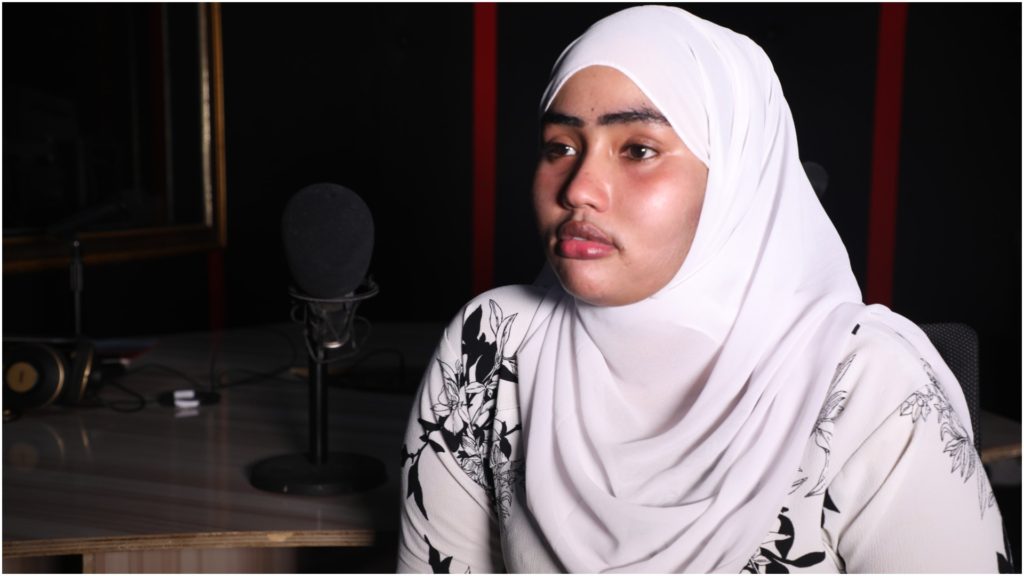
“I had been constantly harassed just because I am a woman and a journalist. I decided to move to Mogadishu without the support of my family. I continued my work here in Mogadishu. The challenges are still here but thanks God I became strong and overcome. Now I produce a daily show on TUSMO TV which I am proud of,” she told SJS.
Habon and her colleague Ms. Hani Hussein Ali have now begun supporting other women reporters in Mogadishu with simple advice: be resilient and committed.
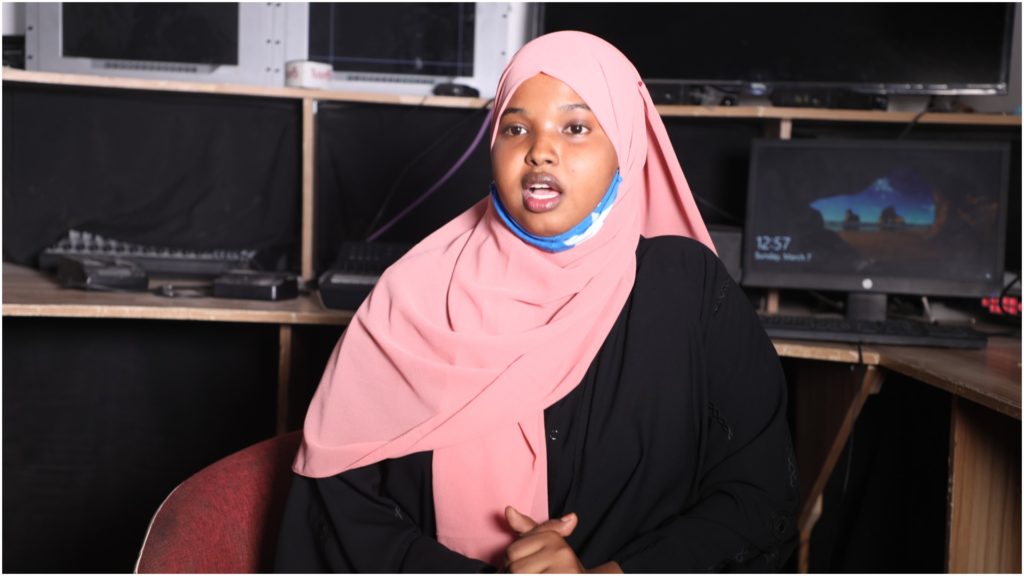
“When women lead, we see positive results. We tell women reporters that when they overcome many problems, they eventually become resilient and strong. My ambition is to be a role model for other female journalists in the country,” Ms. Hani says.
SJS calls for the authorities and media leaders to break down the cultural and socio-economic barriers that prevent Somali women journalists from taking their seat at the decision-making table to make sure that resources and power are more equitably distributed. Women journalists should not remain to be the lowest paid staff while many of them are in extremely vulnerable forms of employment.
”Somali women journalists played great role in the development of the media industry and deserve equal opportunity in the leadership of the media. They deserve respect, not harassment,” Abdalle Ahmed Mumin, Secretary General of Somali Journalists Syndicate (SJS) said, “I commend our SJS gender unit for their tremendous contribution of the union through their leadership skills.”
WATCH VIDEO TESTIMONIES OF THREE WOMEN JOURNALISTS IN MOGADISHU
